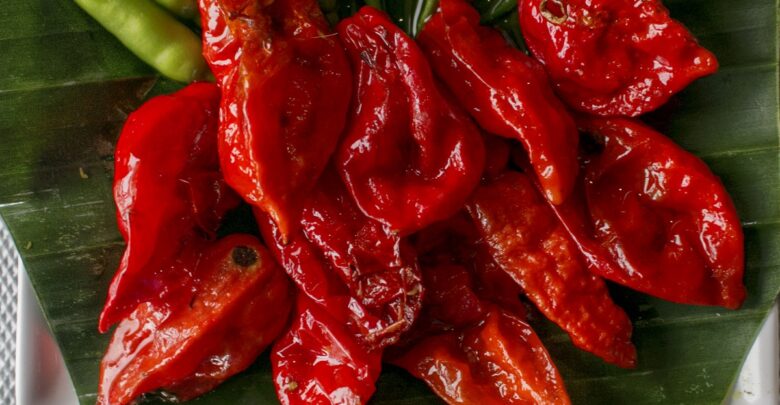New Research Shows Planting Insanely Hot Peppers Can Solve Your Rodent Problems
Use hot peppers for rodent control or great recipes!

Got a problem with rodents eating your plant seeds? Scientists think that ghost peppers might be the solution.
A Natural Solution
After 4 years of laboratory and field experiments in Montana’s Missoula Valley, scientists found a natural solution to prevent rodent seed predation. The solution came in the form of a powder made from the Bhut jolokia, or ghost pepper, which is one of the hottest peppers on earth. The Bhut jolokia naturally produces capsaicin to deter would be predators. Scientists created a solution with the pepper which could be applied to any plant to deny rodents of a tasty snack.
Here’s the abstract from Restoration Ecology Journal
Seed predation by rodents presents a significant barrier to native plant recruitment and can impede restoration seeding efforts. In nature, some plants contain secondary defense compounds that deter seed predators. If these natural defense compounds can be applied to unprotected seeds to inhibit rodent granivores, this approach could improve restoration seeding. Capsaicin is the active ingredient in chili‐pepper (Capsicum spp.) seeds that creates the burning sensation associated with human consumption of hot peppers. This compound has a similar effect on other mammals and is believed to have evolved as a deterrent to rodent seed predators. We used seed‐coating techniques to attach powder ground from Bhut Jolokia (C. chinense) peppers to native plant seeds and evaluated the efficacy of these seed coatings for deterring rodent seed predation and enhancing native plant recruitment using laboratory and field experiments. Laboratory feeding trials demonstrated that native deer mice (Peromyscus maniculatus) consumed far fewer pepper‐coated seeds compared with untreated control seeds. Field seed‐addition experiments consistently demonstrated that rodent seed predation reduced native plant recruitment over the four year study. Coating techniques used in the first three years were not persistent enough to reduce rodent seed predation effects on plant recruitment. However, a more persistent coating applied in conjunction with late‐winter sowing negated rodent seed predation effects on recruitment in year four. Our results demonstrate that coating seeds with natural plant defense compounds may provide an effective, economical way to improve the efficacy of plant restoration by deterring seed predation by ubiquitous rodent granivores.
Try It For Yourself
Just be careful, ghost peppers are extremely spicy and can cause extreme pain if you get them in your mouth or eyes. Peppers are a great addition to any garden and have proven useful in many different ways.
And while you’re at it, here is a top notch recipe from HuntChef on CarbonTV on how to use those peppers in other ways!


I have been trying to grow tomatoes from seeds. They reach 3 or 4 inches high then fall over. I also use a heat mat and a light. Is there anything that I should mix with the starter mix? Thank you.